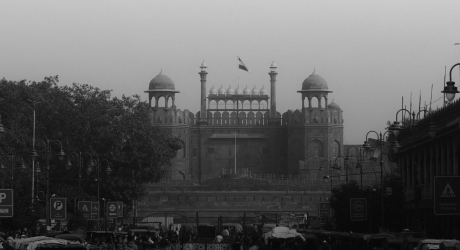Scholars have defined peace thus: "Peace is the absence of war." This definition is absolutely correct. Peace in fact means the absence of a situation of war or violence.
However, some people hold this definition of peace to be inadequate. They say that justice should accompany peace; that peace devoid of justice is no peace. But setting such a condition for the attainment of peace is impractical. This is because peace on its own does not bring justice. That is, justice is not necessarily an element of peace. What peace does, in actual fact, is to open up opportunities. It creates favourable conditions that would enable us to strive for justice and other constructive ends. Peace is always desirable for its own sake. Everything else comes after peace, not along with peace. The case of Japan is a concrete example of the success of this formula.
A peace policy always serves as a peace 'bomb', in the sense that it conquers the enemy without any bloodshed. History shows that the peace bomb has always proved to be mightier than the violence bomb.
A peace 'bomb' means life, and a violent bomb means death. A peace 'bomb' leads to construction, while a violent bomb leads to destruction. Likewise, a peace 'bomb' brings progress, while a violent bomb brings annihilation. Peace enhances creativity, whereas violence does the very opposite. The power of a peace 'bomb' is based on love, while that of a violent bomb is based on hatred.
According to Islam, peace is therefore not simply an absence of war; peace opens doors to all kinds of opportunities that are present in any given situation. It is only in a peaceful situation that planned activities are possible. It is for this reason that the Prophet Muhammad (May peace be upon him) went to great extents to establish peace at all costs. The treaty of Hudaybiyya, between the Prophet and his opponents, provides one such clear example. From the details of the peace treaty, it is clear that no clause regarding justice was included. Obviously the conditions of this treaty were quite against justice. But the Prophet accepted this treaty, not because it was giving them justice, but because it was paving the way to work for justice. It is for this reason that the Qur'an says 'reconciliation is the best' (4:128).
Therefore, according to Islam, the only practicable formula for obtaining peace is, therefore:
'Ignore the problems, avail of the opportunities.'
Because of the importance of peace, the Qur'an has clearly declared that no aggressive war is permitted in Islam. Muslims can engage themselves only in a defensive, not in an offensive war, irrespective of the circumstances (2:190).
Similarly the Prophet Muhammad PBUH has observed: "God grants to gentleness (rifq) what He does not grant to violence (unf). (Sunah Abu Dawud 4/255)
The Qur'an has this to say of the mission of the Prophet Muhammad PBUH: We have not sent you forth but as a mercy to mankind. (21:107)
No wonder, then, that the Prophet Muhammad PBUH so earnestly used to entreat his Lord in his daily prayer: "O God, You are the original source of Peace; from You is all Peace, and to You returns all Peace. So, make us live with Peace; and let us enter paradise: the House of Peace. Blessed be You, our Lord, to whom belongs all Majesty and Honour!"








